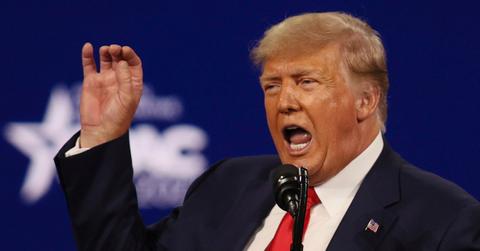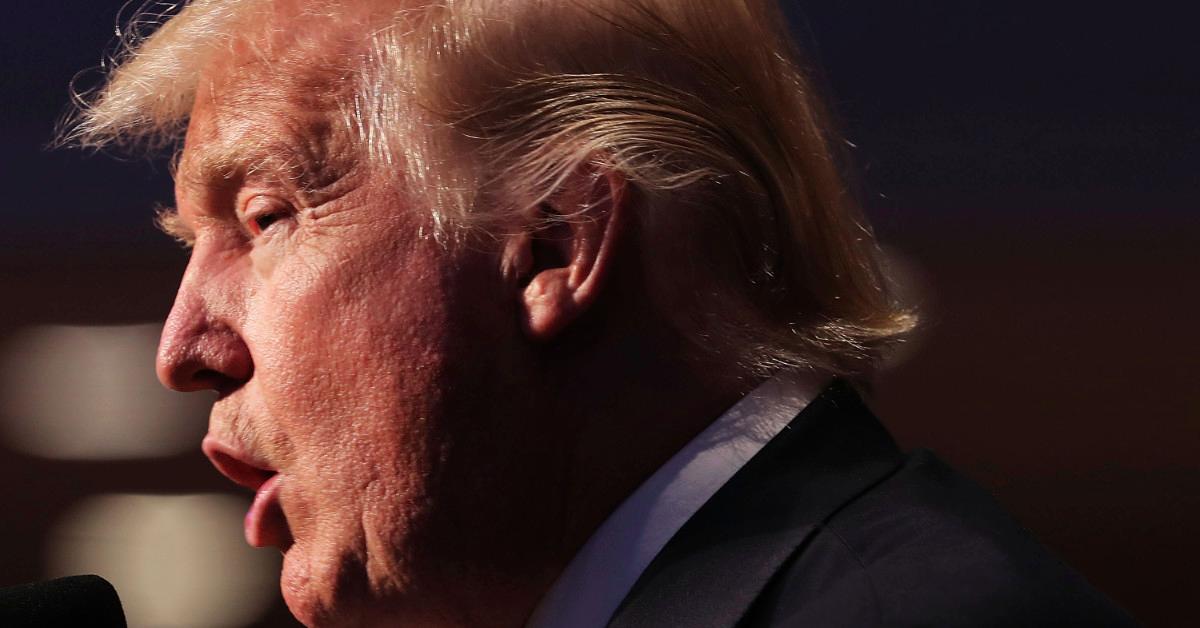Why the U.S. National Debt Rose to $7.8 Trillion Under Trump
The national debt under former President Trump rose $7.8 trillion amid the tax cuts and spending. It was a crisis even before the COVID-19 pandemic.
April 13 2021, Published 11:25 a.m. ET

Under former President Donald Trump, the U.S. national debt rose by nearly $7.8 trillion, following the third-largest primary deficit growth out of all U.S. presidents except for George W. Bush and Abraham Lincoln.
And as ProPublica's Allan Sloan and Cezary Podkul pointed out in a Jan. 14 article co-published by The Washington Post, Trump didn’t launch two foreign conflicts like Bush or pay for a civil war like Lincoln.
The national debt increased 39 percent during Trump’s presidency.
By December 21, 2020, with just a few weeks left in Trump’s one-term presidency, the national debt had climbed to $27.76 trillion—a 39-percent jump from the $19.95-trillion debt the country had four years prior when this self-described “king of debt” was sworn into office.

Although most of the deficit increase resulted from the COVID-19 pandemic, but the pre-pandemic debt amount had already made for a “national debt crisis” and a “grave threat to our economic and societal prosperity” in the words of Trump’s own administration.
The Tax Cuts and Jobs Act of 2017 contributed to the soaring debt.
“The combination of Trump’s 2017 tax cut and the lack of any serious spending restraint helped both the deficit and the debt soar,” Sloan and Podkul wrote. “So when the once-in-a-lifetime viral disaster slammed our country and we threw more than $3 trillion into COVID-19-related stimulus, there was no longer any margin for error.”
In addition to the 2017 tax cut—and, specifically, the slashing of the corporate tax rate from 35 percent to 21 percent—the ProPublica authors also attributed the deficit increase to the inefficacy of Trump’s tariffs to cut down the debt. The tariffs on aluminum, steel, and other products raised only $36 billion, less than 1/750th of the national debt.
As of mid-January, they noted that the total U.S. debt was about 130 percent of its GDP and at the highest level relative to our economy since the end of World War II in 1945.
Senate Republicans acknowledge the GOP’s role in the debt spike.
Even Republicans are admitting that Trump and Republican-backed policies share blame in the debt increase, according to The Washington Post. “I mean the previous administration, debt and deficits weren’t a high priority for them,” Senate Minority Whip John Thune (R-S.D.) said on March 5, according to the newspaper.
Republicans are also citing the debt statistics to justify their opposition to President Biden’s $2 trillion infrastructure and climate plan. “We think having a debt the size of our economy for the first time since World War II already doesn’t argue for adding $2 trillion more when the country is clearly on the way back,” Senate Minority Leader Mitch McConnell said in March, the Post reports.
Trump’s legacy looms large for the Republican Party, as Fox News host Chris Wallace reminded Senator Roy Blunt (R-Mo.) in a recent Fox News Sunday episode, according to Slate. “I guess the question is, when I hear, for instance, Mitch McConnell talking about debt and deficits, hasn’t the Republican Party—haven’t you lost your credibility on this issue?” Wallace said.
Blunt’s responded and said, “I don’t think anybody has a very good record for the last decade on this.”
